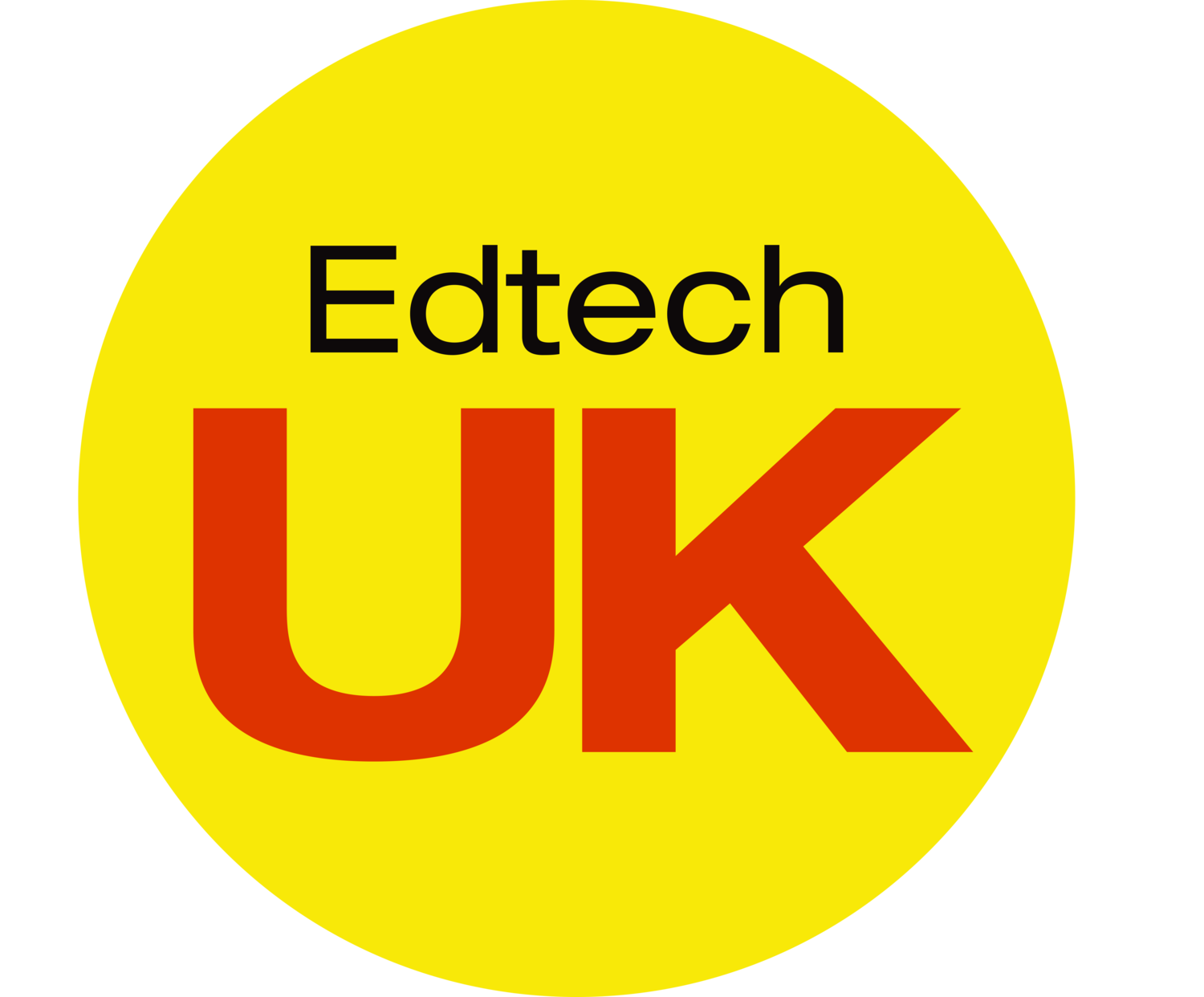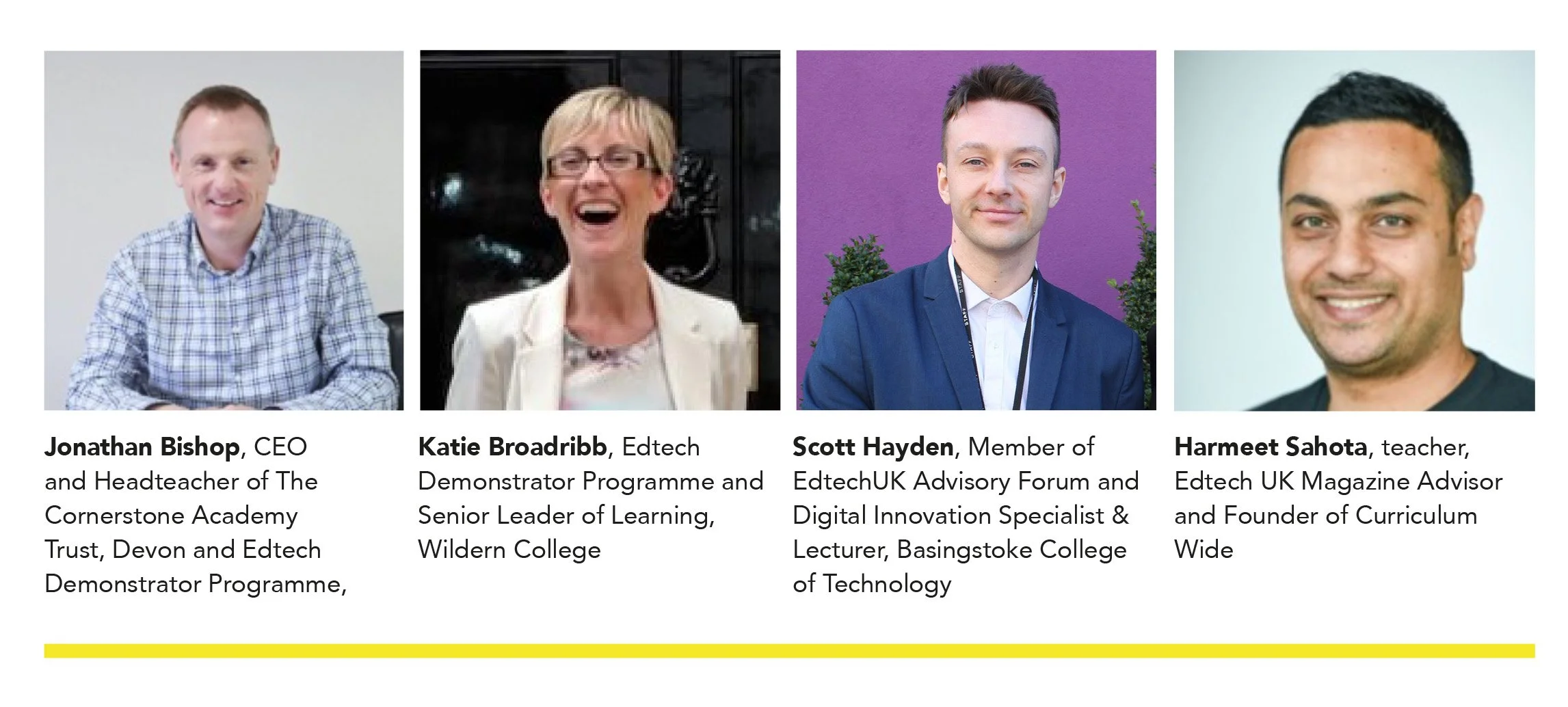The Future of Edtech
Following a year in edtech like no other, the Edtech UK Magazine gathered a roundtable of educators to ask their views on how the edtech sector will, and needs to, respond going forwards.
How do you think the edtech sector will respond going forwards?
Jonathan: Now schools have the infrastructure and EdTech is mainstream, all schools will be able to democratise access and incorporate blended learning in a sustainable way. The strategy is likely to keep the best parts of the experience of the past year, and develop them into a long-term approach supported by procurement and training.
Harmeet: An effective digital strategy should be part of every school improvement plan (SIP). This will only happen if it is pushed by Ofsted as part of their framework, unfortunately there are schools who will still be sending paper packs home if another lockdown was to arise, due to a lack of expertise and confidence.
What are the key learnings for you as individuals?
Katie: Students actually need help to become these competent, confident self-regulators too. The lessons where I screen recorded myself starting a task, like making an online mind map or even simply how to take notes (Cornell method anyone?!), were the best investment in supporting students to really understand what they can do to help the information stick. I’m not surprised the APPG report found students felt they made more progress digitally. Whether this is true is hard to judge, but when they feel confident you get the buy-in from students that supports a positive attitude to learning.
Scott: Podcasters, audiobooks, graphic novelists, vloggers, LIVE-streamers, and Social Media influencers can teach us a thing or two about engaging learning experiences. Shame on me for not being as good as the ‘Dissect’ podcast that deconstructs masterpiece albums song-by-song, line-by-line, beat-by-beat with beautiful, intricate, and philosophical analysis - that podcast taught me more than any classroom I have ever been in. There is so much to learn from these new forms of communication.
What are the key learnings for your peers or your communities?
Scott: Coaching is the way forward - long-term, sustainable, bespoke, and supportive 1-1 coaching.
Harmeet: Hybrid learning can work with the right setup and CPD, staff can adapt and learn quickly. Audio tools can really support teacher wellbeing, improving the quality of feedback and the time taken to deliver it. Staff need continuous CPD to build on the progress made.
What are the key learnings for your age phases/specialist areas?
Jonathan: In our schools, all age phases have operated virtually, from Nursery and Early Years to Year 6. In addition, our specialist areas – the Science Learning Partnership, English Hub and Computing Hub - have all continued to operate virtually, offering support to educators, and will continue to do so.
Harmeet: There is not a one size fits all approach. Some lessons and classes lend themselves to particular software, some lessons are better delivered asynchronous, some are better delivered as synchronous lessons. There is also a couple of lessons that are difficult to deliver remotely - due to specific software required, i.e. MS Access - there are solutions to this but not that straightforward to implement.
Scott: Digital Wellbeing needs to be the focus of the next 5-10 years of my career. Focusing on helping learners to use digital tools professionally and productively in a positive manner is crucial and something we all need to pro-actively confront across all areas. Managing our addictions to tech with intention and using tech to enhance our lives rather than consume them is the aim.
What do we need to change in the short and long term as a profession?
Katie: We have got to evaluate our uses of technology in the classroom and for home learning. The potential to support learners through assistive tech and applications are immense, but it expands beyond that. For example Year 5 students voice recording their first draft of a creative writing task to get them started in the process, or Year 11 using a tool like Seneca with it’s algorithm designed to pop in questions about a topic not understood at the optimum time. I just think leaders and teachers need to be open to the known fact that it’s technology for learning.
Jonathan: The key now is to commit to providing resources, including devices. Schools need to change the way they look at their budgets and factor in how they’re going to pay for their digital strategy going forward – including the regular replenishment/upgrade of technology. The profession now needs to consider IT not just as a ‘bolt-on’ way of enhancing lessons but as an integral solution that supports the whole school beyond the classroom, including staff meetings, collaboration, back office and administration.
Harmeet: Flexible working. Edtech should be part of ITT. The only way all schools will adopt a ‘digital strategy’ if Edtech is part of the Ofsted framework. Hard to reach schools still need to buy in to Edtech but having exposure to schools leading the way i.e. Edtech Demonstrator schools/colleges.
Scott: We need to change the perception of edtech as being ‘other’ or separate from learning. Our students do not think of their lessons as ‘flipped’, ‘blended’, or ‘digital’ - it’s just learning to them. It needs to be thought of in the same open-minded and inclusive way by Teachers.
What do we need to ‘keep’ for the edtech future?
Katie: I hope the edtech sector focussed more on strategy rather than the device. In the past I’ve often felt it was a choice of brand/device leading schools strategy and so an outcomes 1st approach where it’s simply technology for learning is crucial.
Scott: This is just how we all learn now - through a foraged and curated mix of all sorts of tech alongside the irreplaceable human mentoring and coaching that can never be automated. We need to keep moving forward and show all Teachers tech as an accelerator and an augmentation of our craft.


